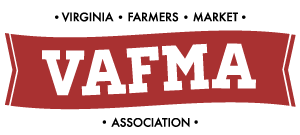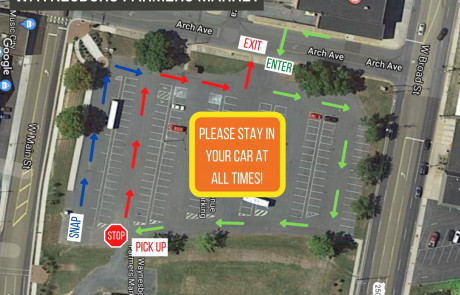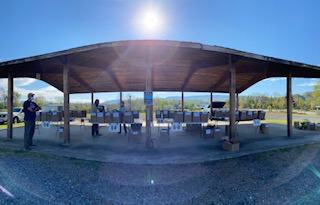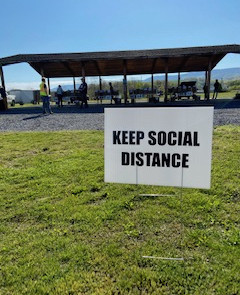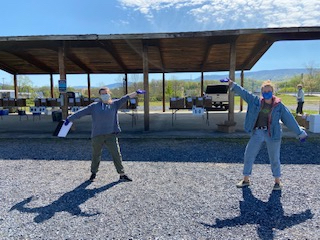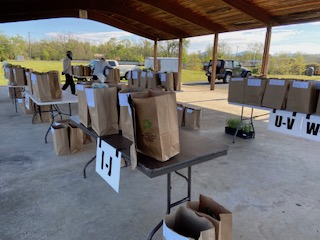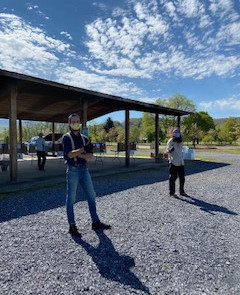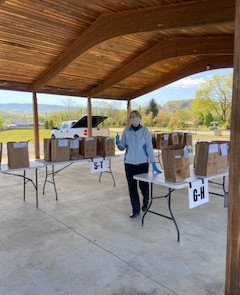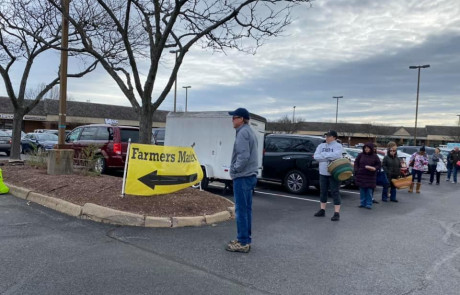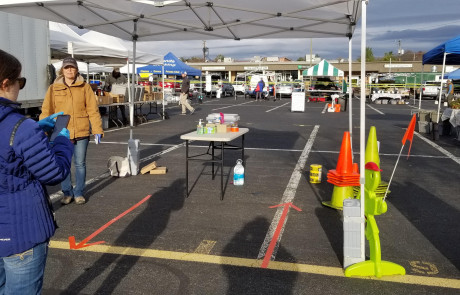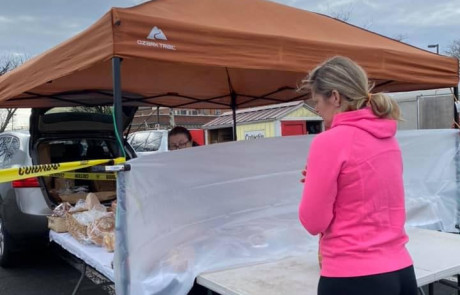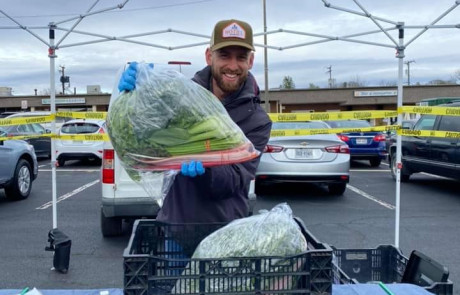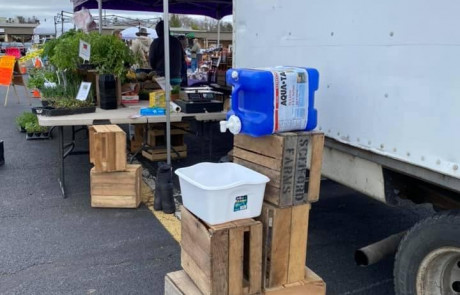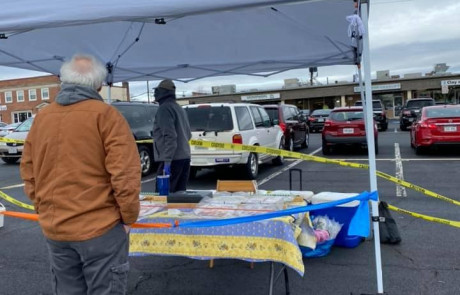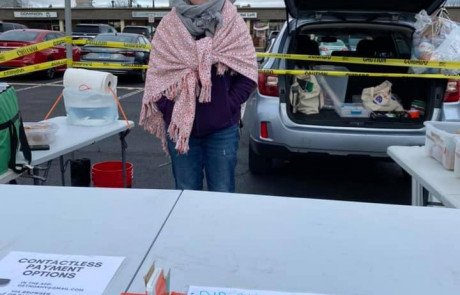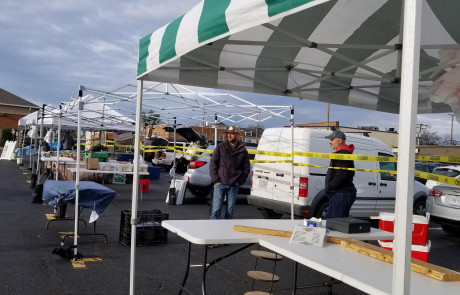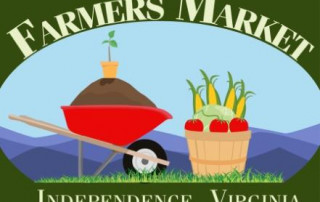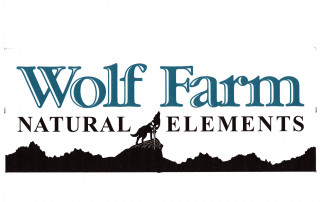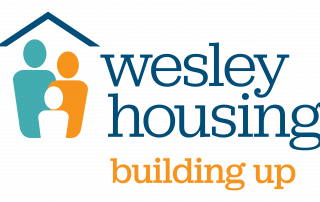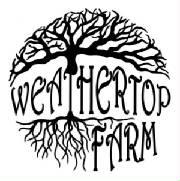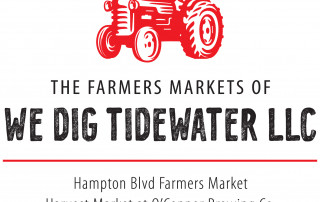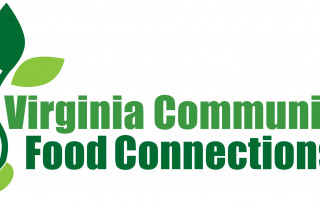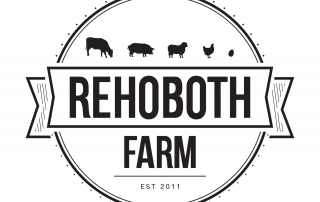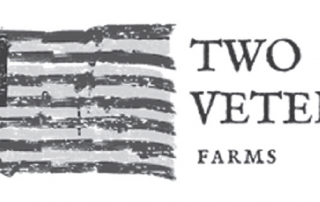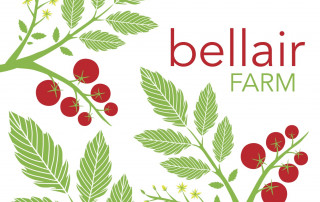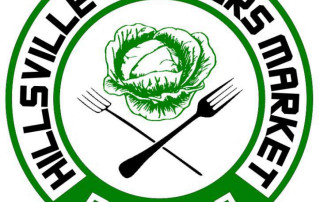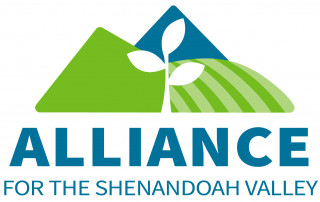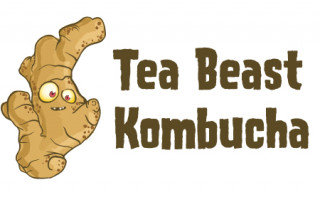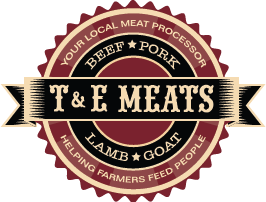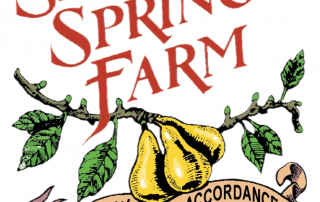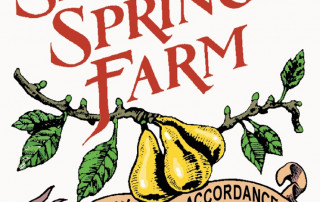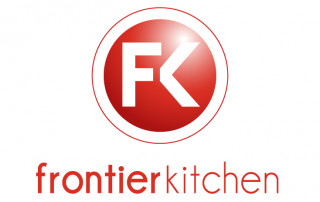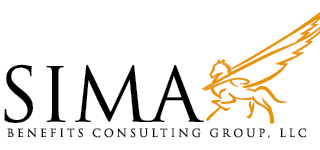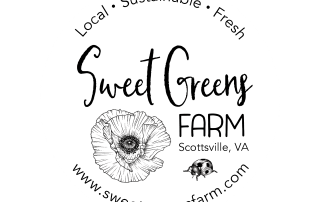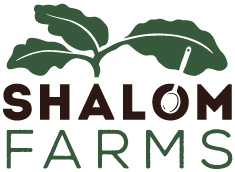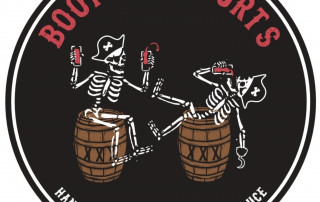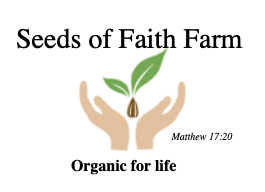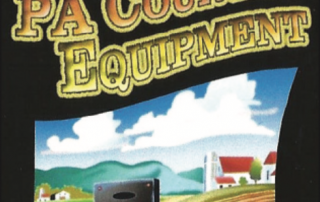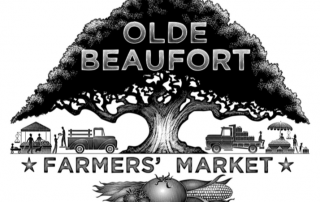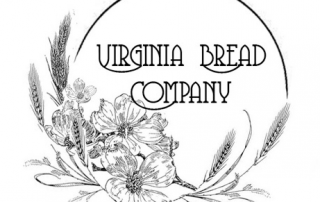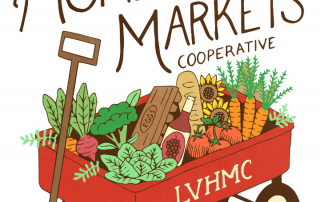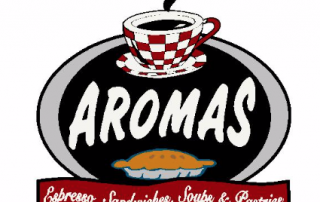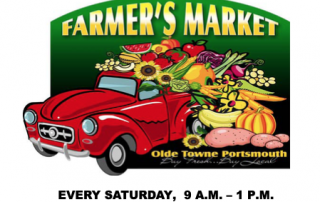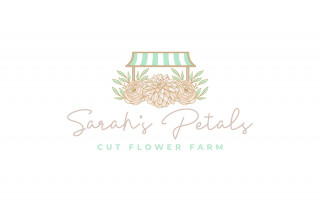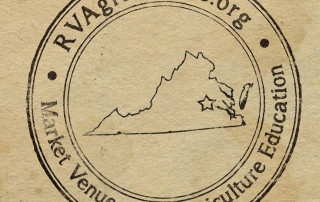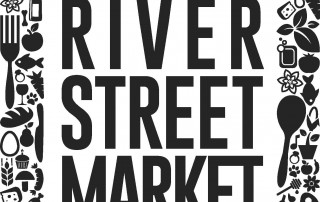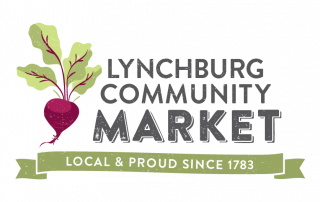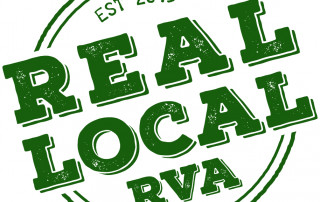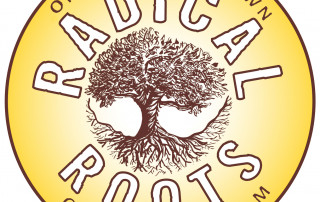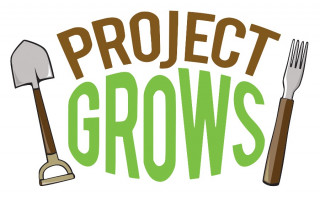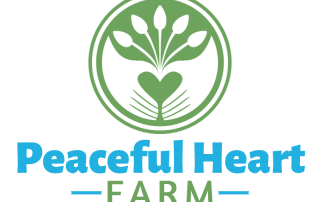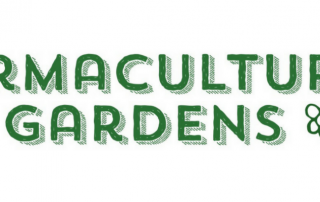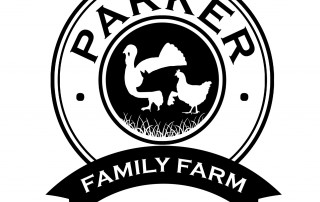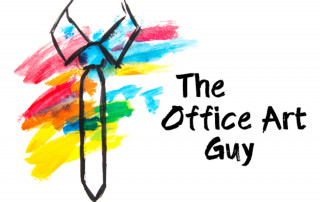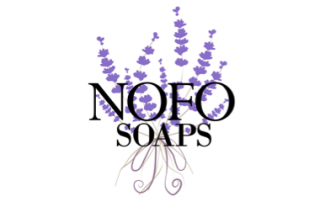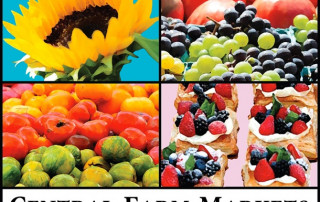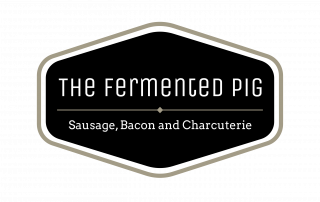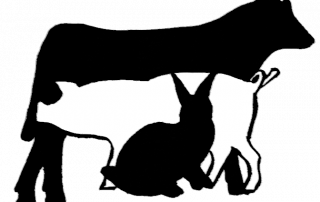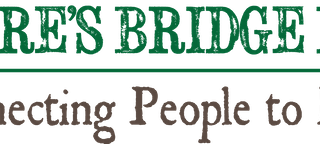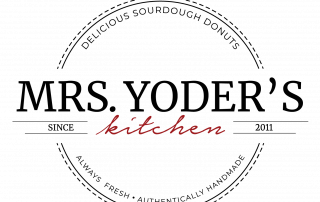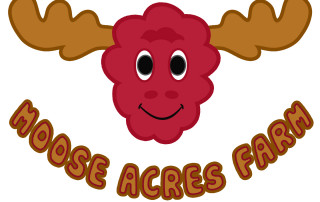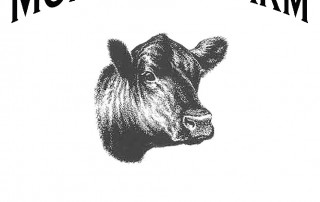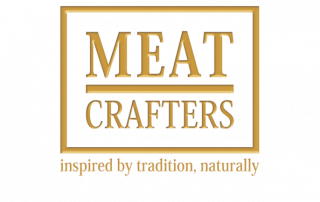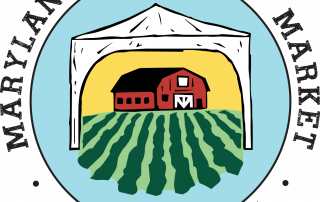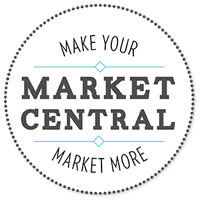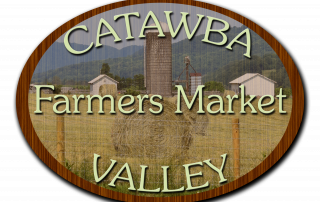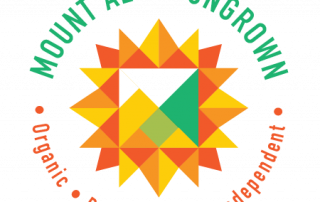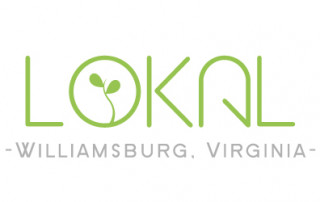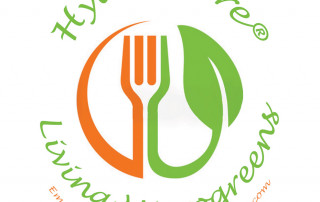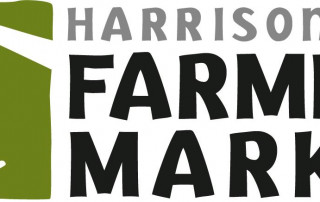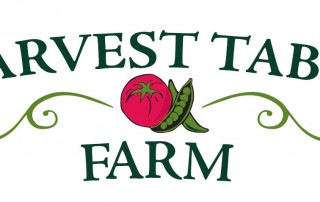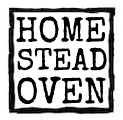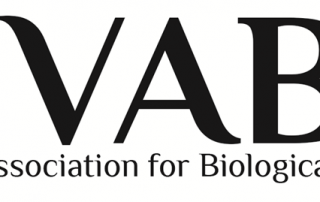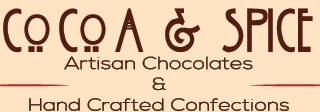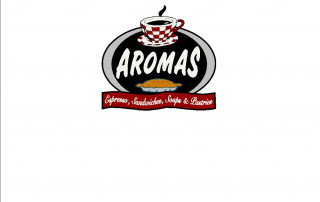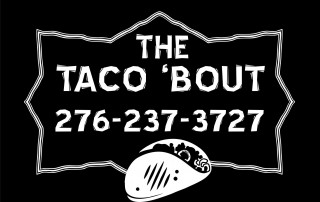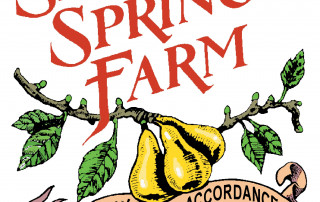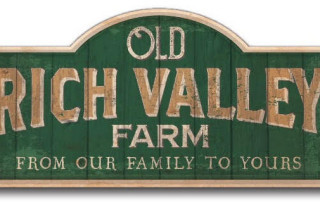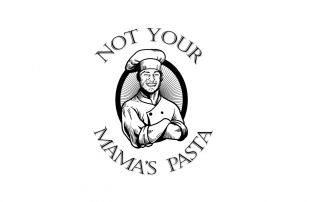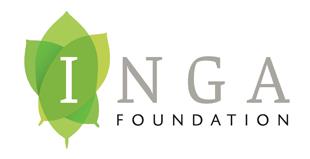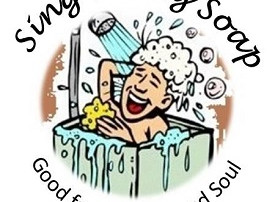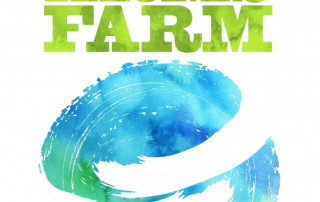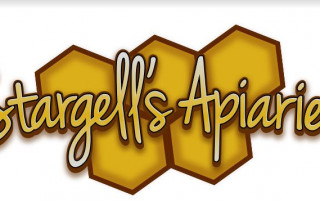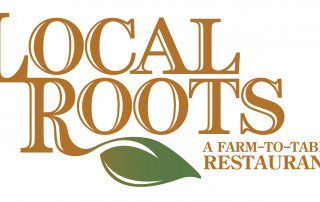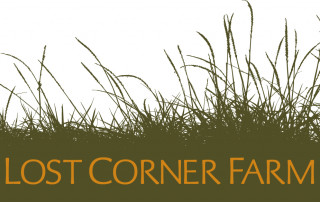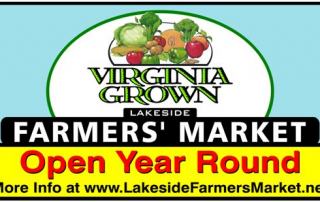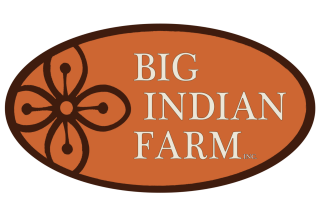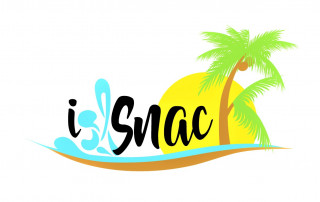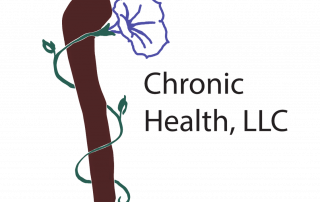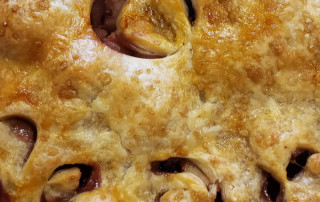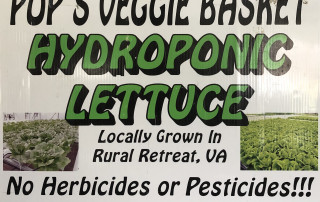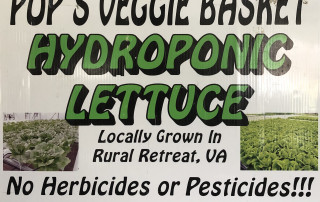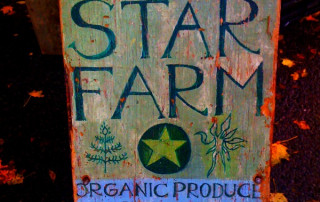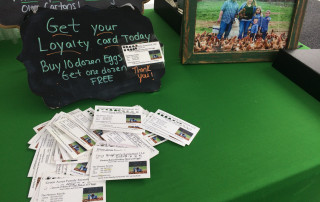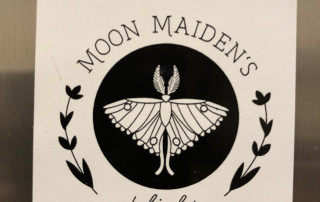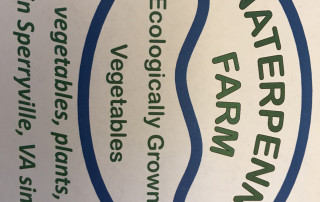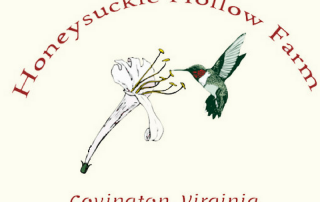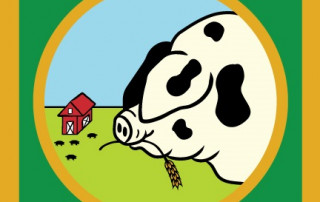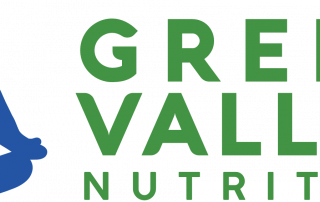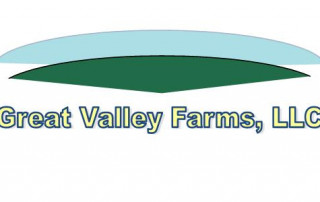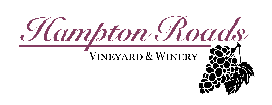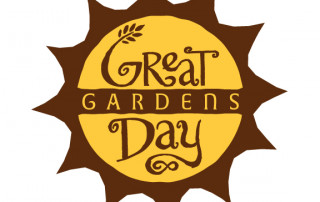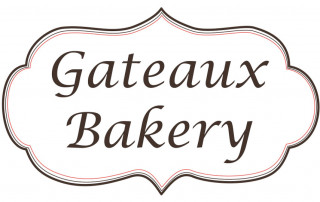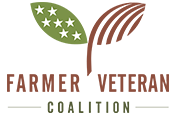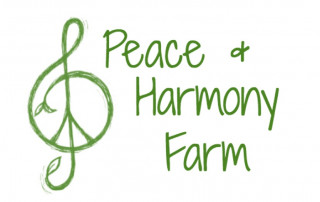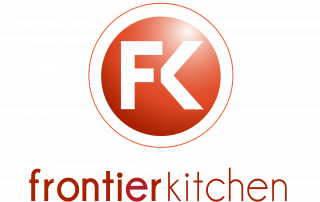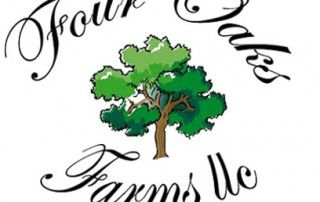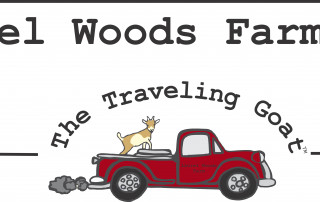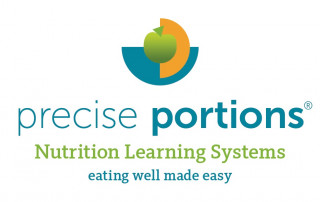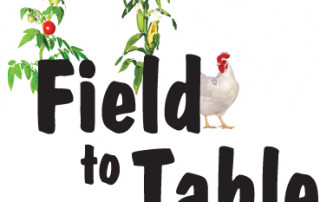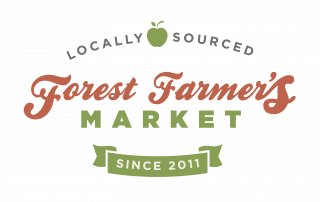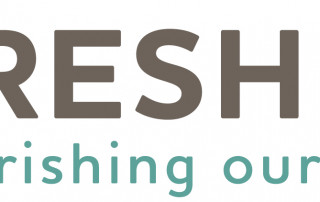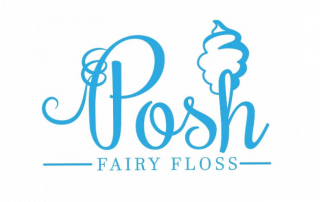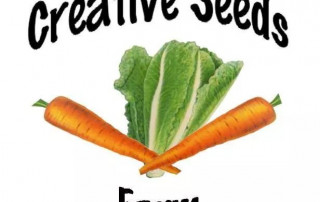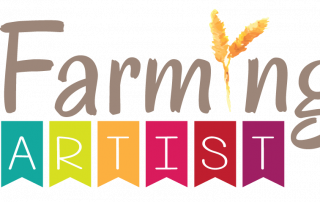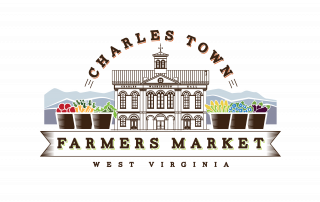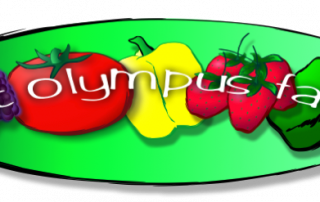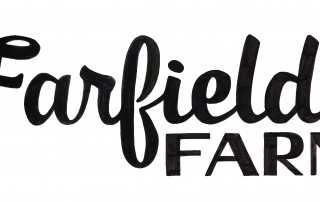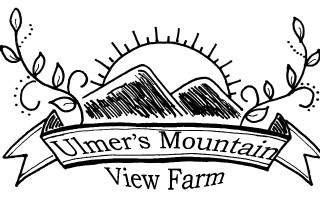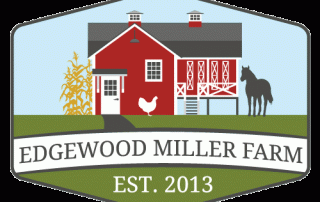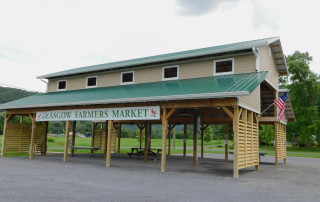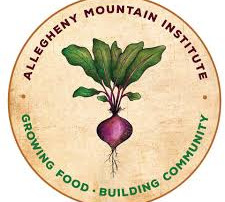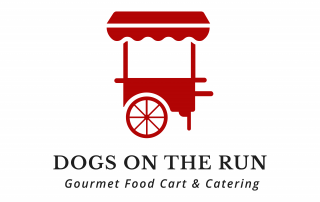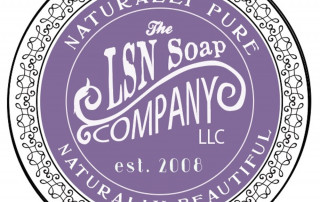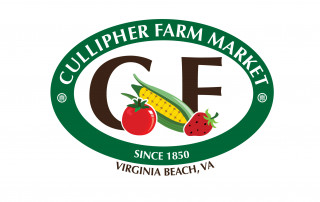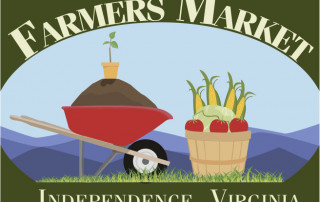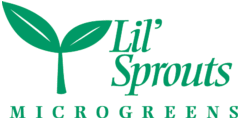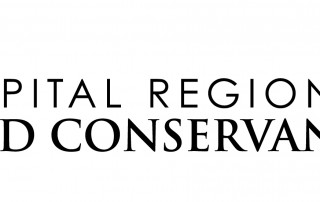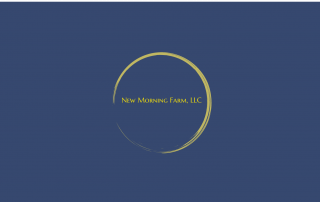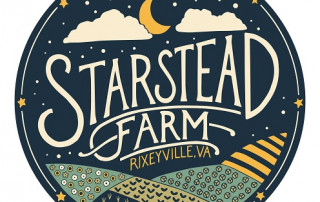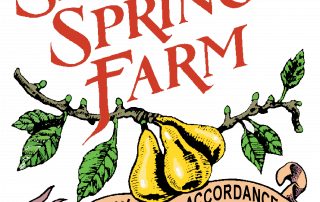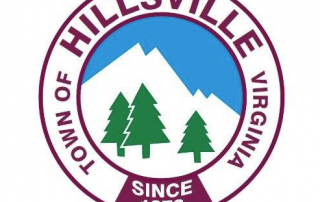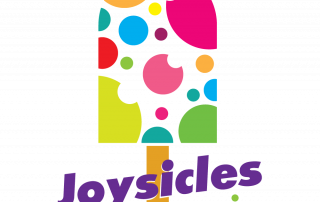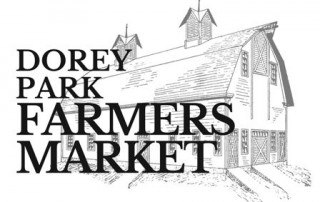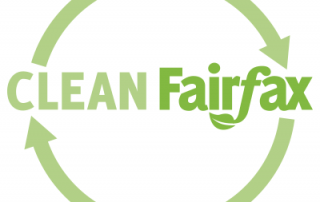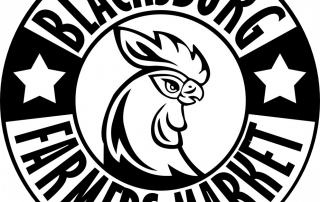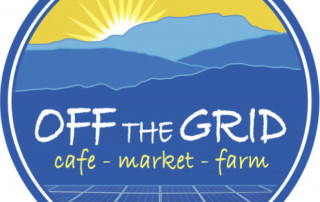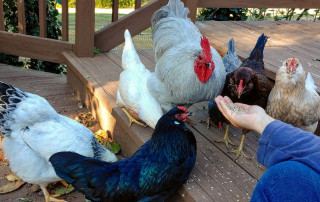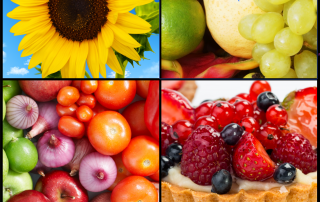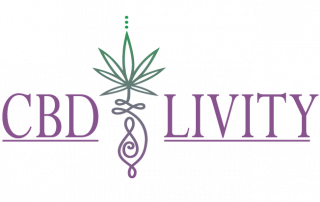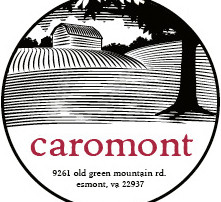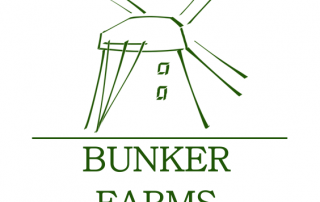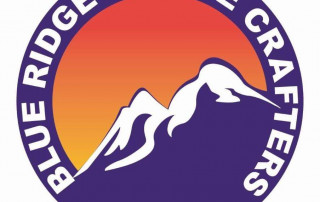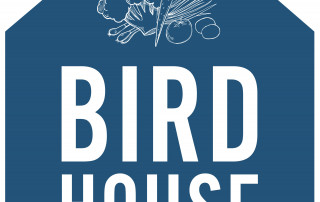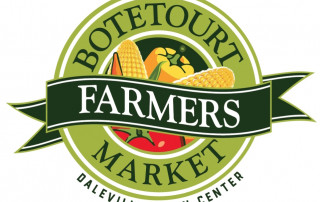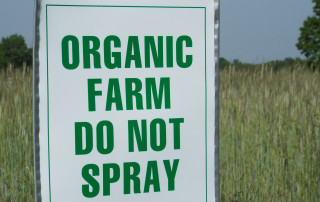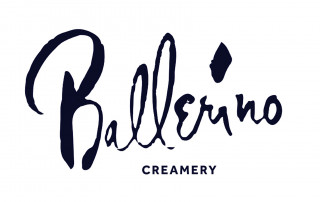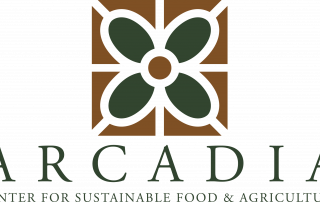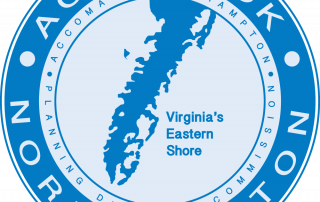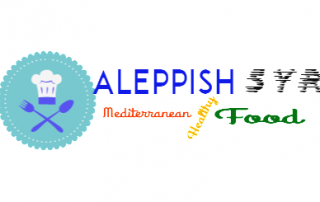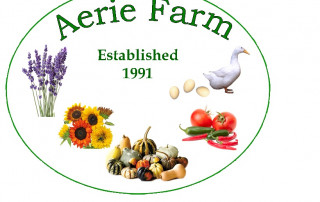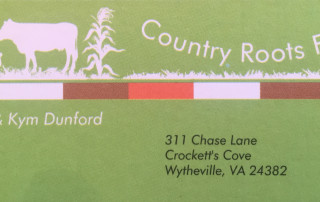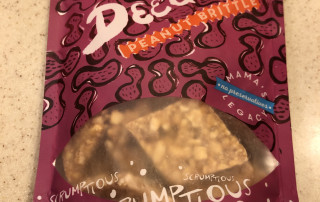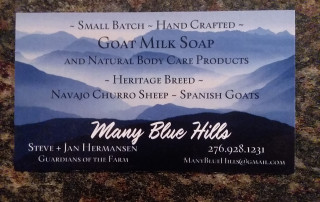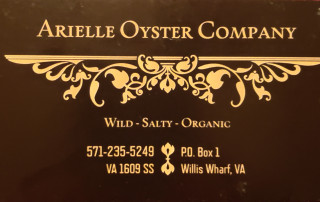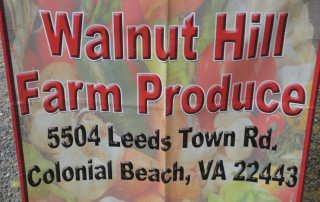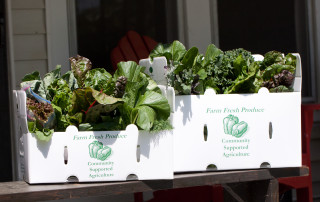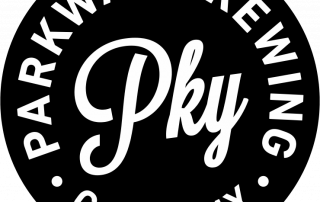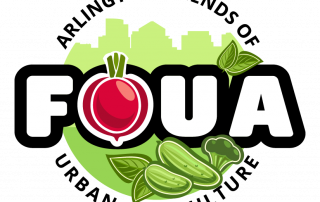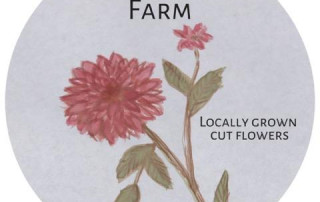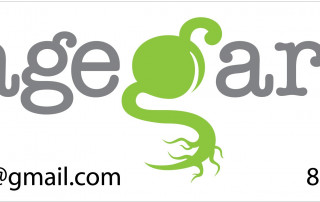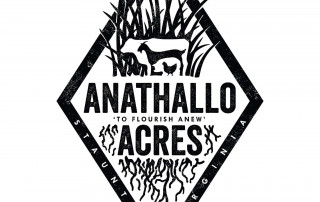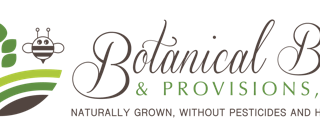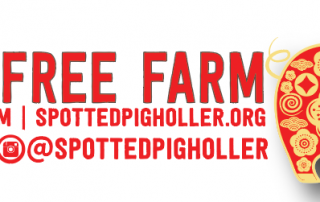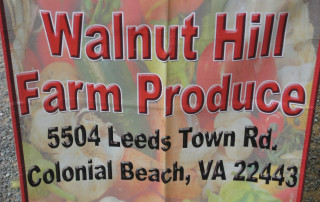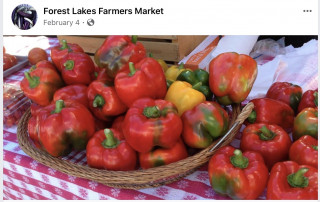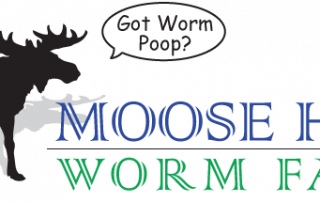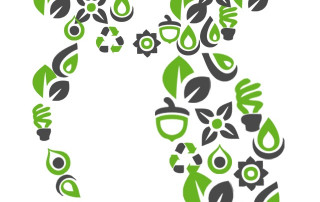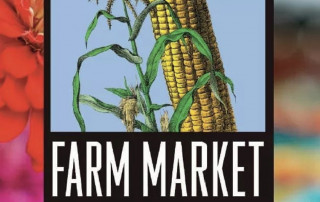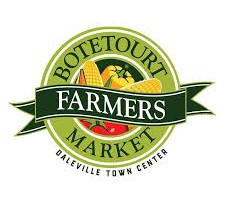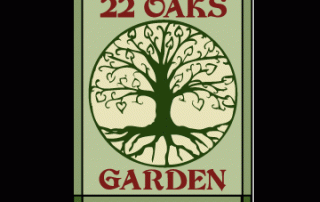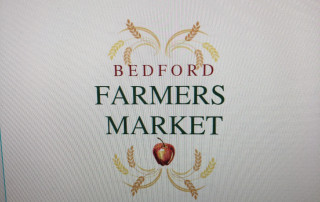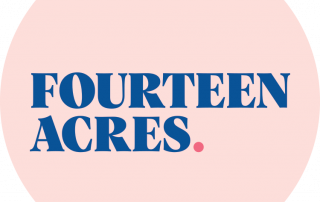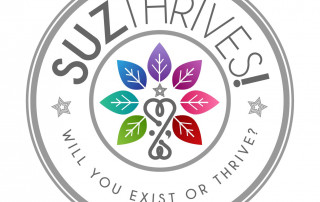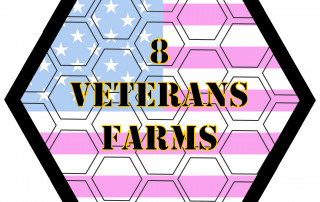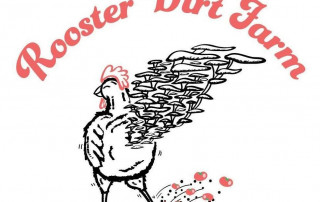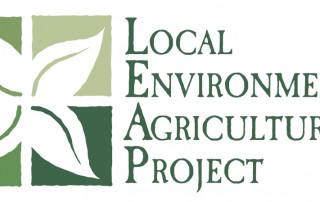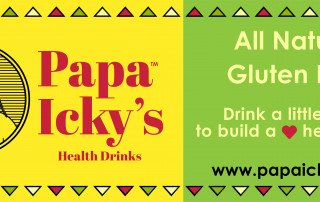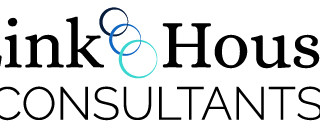Archived Page:
COVID-19
and Virginia’s Farmers Markets
A Special Thank You To Our Statewide Sponsors



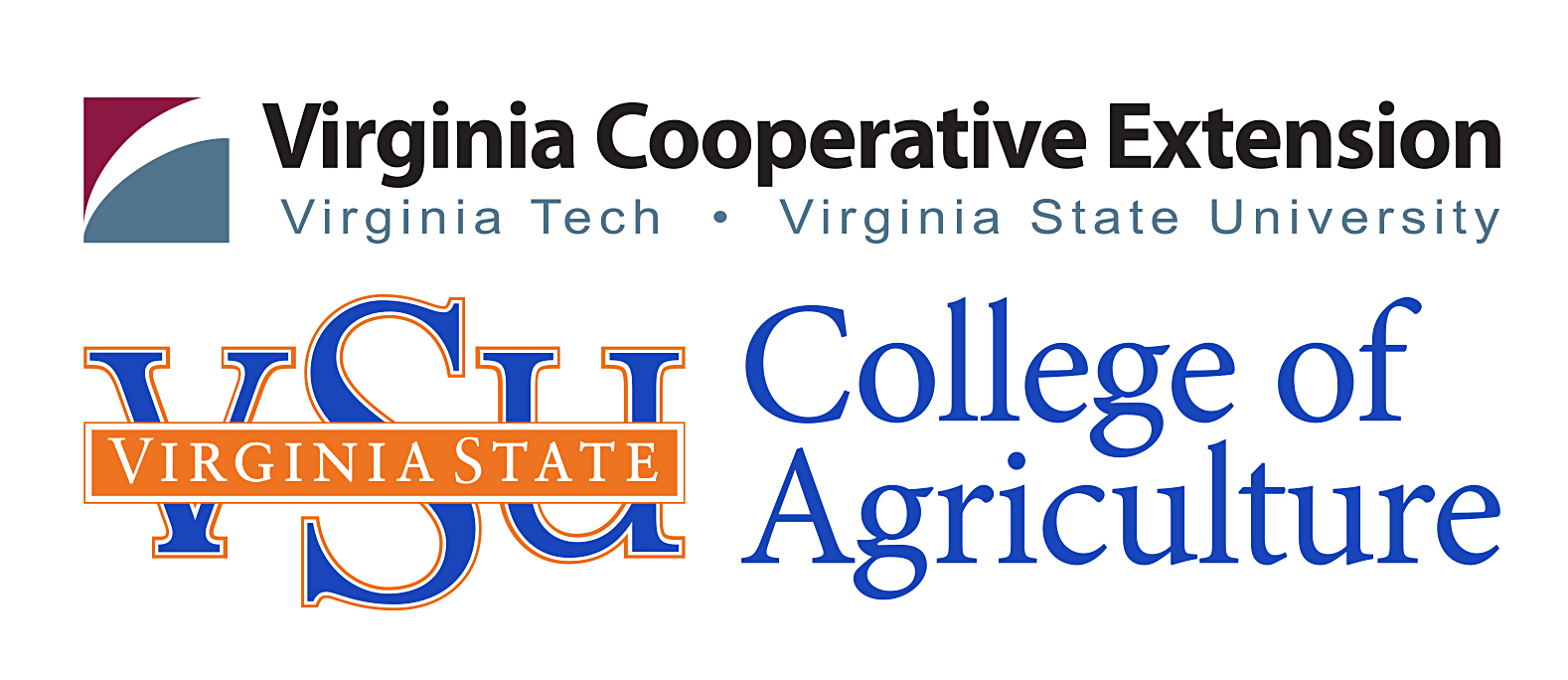
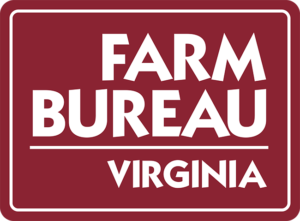
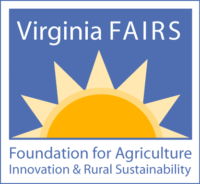
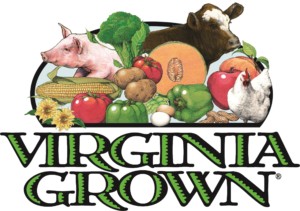
December 10, 2020 — Please visit VAFMA’s new COVID-19 Resource page.
ARCHIVED POSTS:
Updated November 27, 2020
New Infectious Disease Training for Farmers Markets Scheduled for January 5, 2021
New safety standards from the VA Department of Labor and Industry require farmers markets to:
1. Create a check-in protocol for symptoms and exposure before each shift
2. Develop an infectious disease plan
3. Create a coronavirus 101 training for employees and volunteers with a completion certificate offered at the end of the training
To assist farmers markets in complying with this mandate, VAFMA is offering a training class that will walk market managers through the steps of compliance. Our emergency services consultant, Paul Helmuth, will guide attendees through the requirements and how they apply to farmers markets.
Date/Time: January 5, 2021 from 6pm – 10pm
Cost: $150 for members; $225 for non-members
Updated November 16, 2020
Impact of Governor Northam’s Phase Three Tightening on Farmers Markets
November 16, 2020 — Regarding Governor Northam’s Phase Three Tightening of Certain Temporary Restrictions, the 25 person limit mentioned only applies to social gatherings, not farmers markets. This has been verified by Cassidy Rasnick, Deputy Secretary of Commerce and Trade in the Office of Governor.
You may read the details of the restrictions here and here.
VAFMA will continue to communicate with VDACS and the Governor’s office for clarification of restrictions as they are announced.
News Release: Governor Northam Announces New Statewide Measures to Contain COVID-19
Mandatory & Best Practices: Safer at Home: Phase Three Guidelines for All Business Sectors
Updated October 27, 2020
Infectious Disease Training for Farmers Markets
All Virginia businesses – including farmers markets, farms and market vendors — are now required to adhere to the new Statewide Emergency Workplace Safety Standards adopted by The Department of Labor and Industry’s Virginia Occupational Safety and Health (VOSH) Program and the Virginia Safety and Health Codes Board in July 2020.
The standards require farmers markets to:
- Create a check-in protocol for symptoms and exposure before each shift
- Develop an infectious disease plan (deadline was 9/14/20) * (businesses with 11 or more employees)
- Create a coronavirus 101 training for employees with a completion certificate offered at the end of the training (deadline was 8/14/20)
To assist farmers markets in complying with this mandate, VAFMA is offering a training class that will walk attendees through the steps of compliance. Harrisonburg City COVID-19 Response Coordinator, Paul Helmuth, will guide attendees through the requirements and how they apply to farmers markets.
Through this 4 hour class, participants will receive:
- A certificate of completion
- An infectious disease plan template along with training on how to customize it to fit your business
- Education on and digital materials for training your employees
- A link to a recording of the training
Updated September 10, 2020
Phase Three Further Easing of Restrictions
A recently amended Executive Order from Governor Northam eases some of the requirements on farmers markets in communities in Phase 3. These include:
- Vendors and employees are not required to wear face coverings if the market is outdoors and physical distancing can be maintained.
- Customers may be provided with self-service options.
- Sampling is allowed if VDACS guidelines detailed below are followed.
Employees and vendors in customer-facing indoor areas must continue to wear face coverings over their nose and mouth at all times.
The Virginia Farmers Market Association continues to recommend that vendors, farmers market staff and customers wear face coverings at farmers markets to help prevent the spread of the COVID-19 virus.
VDACS Food Safety Guidance
VAFMA’s Executive Director Kim Hutchinson contacted Dr Jewel H. Bronaugh, Commissioner of the Virginia Department of Agriculture & Consumer Services, to ask 1) if customers can pick up and pick out their own produce and items at farmers markets and 2) that sampling no longer has to be pre-packaged and to go-vendors can sample at their booths.
The Commissioner responded that regarding customers picking their own produce and product sampling, “Customers may be provided with self-service options. Facilities must provide hand sanitizer at food lines and require the use of barriers (e.g., gloves or deli paper) when employees or patrons touch common utensils. Food lines must be monitored by trained staff at all times of operation, and serving utensils must be changed hourly.”
Updated July 22, 2020
Webinar Recording Available: Farmers Selling Online – Using Lulus Local Food
On July 21st VAFMA and VSU recorded a webinar that takes a closer look at Lulus Local Food – a platform that farms across the state are using to sell online. We look at the application process, setting up and tracking your inventory and how to download reports. We also share how farmers can use the platform as their own online store while also selling through multiple online farmers markets.
Updated July 8, 2020
Upcoming Webinar: Deep Dive Look at Lulus Local Food
On July 21st at 1:00 pm, join us for a closer look at Lulus Local Food – a platform that farms across the state are using to sell online. We’ll look at the application process, setting up and tracking your inventory and how to download reports. We’ll also share how farmers can use the platform as their own online store while also selling through multiple online farmers markets. Free Registration
Updated July 3, 2020
Phase Three Updates
Read the Governor’s Required Guidelines for Phase Three are on Pages 12-13 of this Document
Phase 3 Best Practices still promote No Touch / Low Touch customer purchasing: Given the climbing numbers of the virus cases across the nation, today VDACS Commissioner, Dr. Jewel Bronaugh suggested farmers market vendors continue to adhere to no touch shopping and keeping products 6-feet from customers.
In Phase 3, restrictions regarding the consumption of food and drink while walking in a farmers market have been lifted.
Updated June 24, 2020
Updated June 19, 2020
Phase Three Farmers Market Requirements
Read the Governor’s Required Guidelines for Phase Three are on Pages 12-13 of this Document
Update: Artisans can come back in Phase 3
Businesses must strictly adhere to the physical distancing guidelines, enhanced cleaning and disinfection practices, and enhanced workplace safety practices provided in the “Guidelines for All Business Sectors” document. Virginia Department of Health and Virginia Department of Agriculture and Consumer Services regulated facilities must continue to follow requirements related to prohibiting sick employees in the workplace, strict handwashing practices, and procedures and practices to clean and sanitize surfaces.
During Phase 3, farmers markets should continue to offer order ahead and pickup options. If markets choose to open, they must adhere to the additional requirements for outdoor service.
Updated June 9, 2020
|
|
|
|
Updated June 4, 2020
Phase Two Farmers Market Requirements
Read the Governor’s Required Guidelines for Phase Two are on Pages 14-16 of this Document
Regarding vendors and market staff wearing face masks:
VDACS Deputy Secretary had a conversation with Governor’s counsel yesterday regarding the requirements / guidelines for face coverings, both for farmers market vendors and for the general public.
According the Governor’s Executive Order and accompanying sector specific guidance: “Employees and vendors working at the farmers markets must wear face coverings over their nose and mouth, such as using CDC Use of Cloth Face Coverings guidance.”
According to advice from the Governor’s counsel, there is not an exemption for this requirement. A farmer or farmer’s employee working at a farmers market cannot serve the public without a face covering.
To clarify, if you are a vendor and have a medical condition that prohibits you from wearing a face mask per CDC guidelines, then you cannot be at the farmers market.
See Page 14 of the Guidelines for All Business Sectors. The same applies if the locality remains in Phase 1 of re-opening.
Updated June 3, 2020
You can now apply for USDA’s Coronavirus Food Assistance Program, which provides direct payments to farmers and ranchers to offset impacts from the coronavirus pandemic. Applications will be accepted through August 28, 2020. See the toolkit for stakeholders here.
Updated May 26, 2020
Virginia Pandemic-EBT can be used at SNAP authorized markets and matched through the Virginia Fresh Match program. Please read this flyer carefully. If you are eligible, you will get a Virginia P-EBT Card in the mail, in the next 30 to 45 days. Use your card to receive a 50% discount of fresh fruits and vegetables at any Virginia Fresh Match outlet location:
www.VirginiaFreshMatch.org/locations
The Virginia P-EBT Card will have food assistance benefits on it that can be used for food items anywhere SNAP benefits are accepted.
You did not apply for these benefits, but you have a student or students in your household who are eligible for free/reduced meals at their school. Because they are not in school right now, Virginia can give you these P-EBT food benefits to use.
Updated May 26, 2020
Updated May 21, 2020
Updated May 13, 2020
Phase 1 Guidance for Virginia Farmers Markets
Below is the Phase 1 guidance that was approved by the Governor’s Office and provided to us by the Virginia Department of Agriculture and Consumer Services (VDACS).
This guidance only applies to farmers markets in communities moving into Phase 1. Farmers markets in communities that have decided to delay moving into Phase One — such as all counties in Northern Virginia — must continue to adhere to previous guidance.
Farmers Markets
Phase I: Establishments must either implement the following mandatory requirements or remain closed.
Mandatory Requirements:
Businesses must strictly adhere to the physical distancing guidelines, enhanced cleaning and disinfection practices, and enhanced workplace safety practices provided in the “Guidelines for All Business Sectors” document. Virginia Department of Health and Virginia Department of Agriculture and Consumer Services regulated facilities must continue to follow requirements related to prohibiting sick employees in the workplace, strict handwashing practices, and procedures and practices to clean and sanitize surfaces.
During Phase I, businesses should continue to offer takeout and delivery options. If businesses choose to open to dine-in customers, they may only do so in outdoor spaces and they must adhere to the following additional requirements for outdoor service:
1. Post signage at the entrance that states that no one with a fever or symptoms of COVID-19, or known exposure to a COVID-19 case in the prior 14 days, is permitted in the establishment or farmers market.
2. Post signage to provide public health reminders regarding physical distancing, gatherings, options for high risk individuals, and staying home if sick (Samples).
3. On-site shopping is allowed, as long as physical distancing guidelines are adhered to. Configure operations to avoid congestion or congregation points.
4. Employees and vendors working at the farmers markets must wear face coverings over their nose and mouth, such as using CDC Use of Cloth Face Coverings guidance.
5. Encourage customers to wear face coverings while entering, exiting, or otherwise traveling throughout the farmers market. Face coverings may be removed while seated.
6. Do not seat parties of more than 10. All parties, whether seated together or across multiple tables, must be limited to 10 or less.
7. For on-site dining, either use a menu board with no individual menus or use single-use disposable menus (e.g., paper) and discard after each customer. Reusable menus are not permitted in Phase I. Refilling food and beverage containers or implements brought in by customers is not allowed in Phase I.
8. Provide a minimum of six feet between parties at tables, (i.e., the six feet cannot include the space taken up by the seated guest). If tables are not movable, seat parties at least six feet apart. Spacing should also allow for physical distancing from areas outside of the facility’s control (i.e. provide physical distancing from persons on public sidewalks).
9. Provide hand sanitizer stations or hand washing stations for patrons and employees.
10. Vendors must use enhanced cleaning and disinfecting practices to regularly clean and disinfect spaces and equipment.
11. No self-service of food (except beverages), including condiments. Condiments should be removed from tables and dispensed by employees upon the request of a customer. Buffets must be staffed by servers. For self-service beverage areas, use beverage equipment designed to dispense by a contamination-free method.
12. A thorough cleaning and disinfection of frequently contacted surfaces must be conducted every 60 minutes.
13. Vendors and employees handling money should sanitize their hands between each transaction.
Best Practices:
In addition to the requirements provided above, establishments are encouraged to utilize the following best practices to the extent they are feasible:
1. Promote no touch or low touch purchasing opportunities by pre-boxing or pre-bagging food items.* (see additional note below)
2. Update your website and social media with detailed instructions so patrons understand the expectations while at your market.
3. Discourage vendor sampling.
4. A mobile market could be used to reach communities with low food access but should comply with social distancing guidelines for customers shopping and follow all recommended hygiene and sanitation protocols.
5. Limit vendors to those selling food and horticultural products, or other handcrafted products critical for hygiene and sanitation such as handmade soaps and facemasks.
6. Encourage touchless payment systems.
Additional Note About Onsite Sales
VAFMA received approval for the following guidance.
For on-site produce and plant shopping:
While vendors will still be using the low touch, no touch method of only having one per item on display, all items to purchase do not have to be individually pre-bagged. They can be kept behind the vendors in boxes — out of reach of customers — and then bagged at time of sale.
For example, If a customer walks up and asks to buy 3 bunches of greens and a bunch of carrots, the producer can select the items, bag them for the customer and set the bag down on the table for the customer to pick up.
Resources to print and display:
Updated May 11, 2020
- Farmers MarketsEffective 12:00 a.m., Friday, May 15, 2020, farmers markets may reopen, provided such businesses comply with the Guidelines for All Business Sectors and the sector-specific guidelines for farmers markets incorporated by reference herein. Such guidance includes, but is not limited to, the following requirements:
- On-site shopping is allowed, as long as physical distancing guidelines are followed. Configure operations to avoid congestion or congregation points.
- Employees and vendors in customer-facing areas must wear face coverings over their nose and mouth at all times.
- Vendors must supply hand sanitizer stations or hand washing stations for patrons and employees.
- A thorough cleaning and disinfection of frequently contacted surfaces must be conducted.
- If any such business cannot adhere to these requirements, it must close.
Updated May 7, 2020
Resource for USA made face masks: https://enviro-tote.com/facemasks
Custom-branded face coverings: https://impactcanopy.com/pages/custom-facial-covering
Updated May 7, 2020
VAFMA Member Project Grows Reports Highest Ever Sales
May 4, 2020 “We had our first market this Saturday at our Waynesboro market location and it went really well! Our sales were the highest they have ever been and we had 3 SNAP customers successfully place and pick up orders. We have received so many positive comments from our customers with our curbside pick up. I wanted to share some photos with you.” — Megan Marshall
Updated May 4, 2020
More Flexible Guidelines Coming for Farmers Markets
This afternoon Governor Ralph Northam announced that more flexibility is coming for farmers markets related to “foot traffic and prepared food.” Secretary Bettina Ring said written guidelines will be finalized in the coming week.
In a conversation with VAFMA Executive Director Kim Hutchinson, VDACS Commissioner Jewel Bronaugh conveyed that the two main changes regarding farmers markets will be that markets can now use on site browsing and on site dining.
She emphasized that markets must continue to adhere to the principles of social distancing and no congregation. There must continue to be 6 feet between customers as well as 10 feet between vendors. Vendors must continue to use personal protective equipment as previously outlined. They recommend that customers use face coverings as well.
We will share the full written guidelines with you when we have them from VDACS.
Updated April 28, 2020
VAFMA has recordings now available of 2 recent online trainings focused on farmers markets and COVID-19. They get into the details of markets using vendor pre-orders and online markets. Learn more here:
Farmers Market Success During COVID-19 – an online training series
Updated April 23, 2020
Updated April 18, 2020
Leesburg Market was featured on Inside Loudoun Podcast recently.
We also now have resources available for using SNAP/EBT during COVID-19:
Updated April 13, 2020
VDACS has released an official summary of guidelines for Farmers Markets:
Updated April 13, 2020
Free Access to Recording of VAFMA Webinar Now available: Getting Your Market Open & Keeping it Open During COVID-19
Meredith Ledlie Johnson of Virginia Cooperative Extension will be with us to discuss using SNAP at markets during COVID-19. She’ll share how market managers are adjusting SNAP benefit sales to meet the current market guidelines.
Kim Hutchinson, Executive Director of VAFMA will explain how to work with your local officials to get your market open. Howard Herman of Falls Church Farmers Market will share his experience navigating the challenges he faced getting his market open.
Riko Metzroth of Farmers Insurance Financial Services will be with us to discuss general liability during COVID-19. He’ll also talk about two Small Business Administration Loans of interest to markets and vendors.
Updated April 13, 2020
Farmers Market Manager Call with VDACS – Tuesday April 14th
Tuesday, April 14th, 2:00 PM – 3:00 PM, Secretary Bettina Ring and Commissioner Jewel Bronaugh invite farmers market managers to join them for updates and discussion around VDACS farmers market guidance during COVID-19.
The goal of the call is to provide additional guidance for farmers markets, while maintaining operational flexibility to meet community needs.
Please note … this call is for farmers market managers ONLY. Please do not encourage additional members to join, as they wish to effectively manage discussions and answer questions around topics of importance to managers.
Farmers Market Manager Call
Tuesday, March 14th, 2:00 PM – 3:00 PM
Agenda:
⁃ 2:00 PM – Introductions: Jewel Bronaugh, VDACS Commissioner
⁃ 2:05 PM – Welcome & Overview of Executive Order 53 & 55: Bettina Ring, Secretary of Agriculture & Forestry
⁃ 2:10 PM – Farmers Market Guidance: Jewel Bronaugh
⁃ 2:15 PM – VDACS Guidance Update and Review of Farmers’ Markets Q&A: Charles Green, VDACS Deputy Commissioner
⁃ 2:25 PM – Online SNAP & Fresh Match Update: Heidi Hertz, Assistant Secretary of Agriculture & Forestry
⁃ 2:30 PM – Questions, Comments, Sharing of Best Practices: Facilitated by Jewel Bronaugh
⁃ 2:55 PM – Conclusion: Secretary Bettina Ring
Conference Call Info:
Tel: 1-866-845-1266
Passcode: 97995625
Updated April 8, 2020
VDACS has released an FAQ specifically for Farmer’s Markets.
Following Gov. Northam’s recommendations, we also encourage all vendors and market staff/volunteers to wear face masks.
If a vendor tests positive for the virus after attending a market:
“If an employee is confirmed to have COVID-19 infection, employers should inform fellow employees (i.e. other vendors) of their possible exposure to COVID-19 in the workplace but maintain confidentiality as required by the Americans with Disabilities Act (ADA). The fellow employees (vendors) should then self-monitor for symptoms (i.e., fever, cough, or shortness of breath). Be aware that some employees may be at higher risk for serious illness, such as older adults and those with chronic medical conditions. Consider minimizing face-to-face contact between these employees or assign work tasks that allow them to maintain a distance of six feet from other workers, customers and visitors.”
Updated April 7, 2020
Here is a recording of the Farmers Markets Physical Redesign for Covid-19 Mitigation meeting held today on Zoom:
Using SNAP/EBT with On-Line ordering and alternate market settings
From Elizabeth Borst: Per FNS, SNAP authorized markets may conduct transactions in alternate locations to provide access to affordable local produce in their communities during the current emergency.
Markets may temporarily organize alternate community sites to sell produce and run SNAP and Fresh Match transactions. Preordering, and paying with SNAP at pick up is fine.
Please note, if you are using Lulu’s for on-line ordering:
SNAP shoppers must call or email Sam Lev (sam@leapforlocalfood.org), and he will help them register. After registration, Sam will give the shopper a credit on their account of $60 (the weekly cap on SNAP+match). This way, shoppers can place orders without paying, then pay 1/2 price upon pickup. Markets should communicate that the order must be “eligible”, aka only SNAP eligible items and over half Fruits and Veggies.
Sam Lev will keep a running list of all registered SNAP shoppers, and refresh their credits up to $60 each week.
Lulus is also working on a Payment on Delivery option, although it may be a week or two away.
If you are using Food4All for online ordering:
Food4All is working with partner markets to provide a pay at pickup option. Unfortunately at this time, there are not “buy on the spot” possibilities.
Updated April 1, 2020
Paycheck Protection Program Application
Updated March 30, 2020
FARMERS MARKETS ARE STILL OPEN UNDER EOC 55!
After speaking with Commissioner Bronaugh of VDACS this afternoon, she confirmed farmer’s markets are still operating under the same guidelines and protocols as last week under EOC 53.
To help keep track of resources and tools being developed by various markets around Virginia, we’ve created a Google Drive folder that markets can access and add to. Take a look, and if you have something you’d like to share with others, please feel free to add it in!
Updated March 26, 2020
The following guidelines were approved via e-mail by Commissioner Bronaugh and Secretary Ring of VDACS. “The additional measures to increase social distancing below sounds very reasonable, and we support that interpretation of VDACS’ most recent guidance.”
From VAFMA: Our interpretation of this most recent guidance from VDACS is that we can continue to run all farmers markets in Virginia provided that we ensure strict social distancing procedures are met and encourage customers to pre-order online as much as possible. Markets will operate under normal times and locations starting this weekend, with enhanced social distancing safety protocols in place.
We will be taking additional measures to increase social distancing:
-
- Market managers will adjust booth assignments to allow as much space for social distancing as possible.
- All vendors are to operate with minimal display, out of their vehicles if possible.
- All vendors must reorganize their space so that customers cannot enter their booth to touch or browse through products.
- Each vendor should display a menu of items for customers to order from. Share early and often on social media so customers can come prepared!
- Vendors must bag products for their customers. Items like produce should be pre-bagged whenever possible to reduce touchpoints. Reusable bags cannot be used at this time.
- Ideally, there should be one employee bagging produce and the other handling money. Gloves are available to use!
- Please continue to push customers to pre-order/pay for items to decrease the density of customers.
- Vendors should do all they can to reduce touchpoints at the point of sale. Turn off signature requirements, and allow customers to insert/swipe their own cards if possible. You could also manually enter the customer’s CC information to avoid touching all together. Please encourage customers to prepay online whenever feasible. Vendors must wipe down screens and card readers with disinfectant after each customer, and use hand sanitizer.
- We recommend that you no longer accept cash, and use touchless payment like Venmo if feasible.
- Market Managers will monitor customer density and restrict entry to the market as needed to ensure there is ample room for social distancing.
- We will be indicating the safe social distance space of 6 feet using painters tape in front of each booth.
- Only one customer can shop at a booth at a time. If a line forms please remind customers to leave 6 feet distance.
- Vendors can accept SNAP, but please keep coupons/tokens in a plastic bag (pleas date!), and turn them into your manager for reimbursement in two weeks’ time (or hold off until things calm down if feasible).
- No on-site food consumption or sampling is allowed! All prepared foods must be packaged to go.
Updated March 25, 2020
Farmers Market Guidance from VDACS
There are many online platforms available to markets and vendors for pre-ordering and online ordering. These are the ones shared with us:
Lulu’s Local Food ,What’s Good, Local Line, Harvie , Food4All., SquareSpace
Here are example instructions provided by Lynchburg Community Market of how to handle curbside pick-up orders:
- All orders must be prebagged and ready for delivery Saturday morning
- All orders must be placed before vendor’s arrival at Market
- This means we cannot take any walk-in or call-in orders day of
- Ask for prepayment of orders
- This helps keep customers moving as quickly as we can
- If prepayment isn’t available vendors must wear single use gloves
- Deliver order, then take payment, then WASH YOUR HANDS
- Hours on Saturday are relaxed
- Invite your customers to pick up before 7 if possible/interested
- We have to put a hard limit on 10 pickup customers.
- If all 10 spaces are full, we will ask customers to circle back
- Please try to stagger customer pickups if they’re asking about pickup times
- Customer procedure
- Staff checks who customer has order with and directs them to parking space
- Staff can run orders – only if prepaid – staff cannot handle money
- Follow above procedure for delivering pickup
- If customer is paying with SNAP let us know! Our SNAP terminal is mobile
If you have had a positive experience with another platform, please let us know.
Updated March 23, 2020 – Farmers Markets May Only Offer Delivery and/or Takeout Services
In a very disappointing turn of events … effective Tuesday at 11:59 PM, Virginia farmers markets may only offer delivery and/or takeout services.
VDACS Commissioner Dr. Jewel Bronaugh just called Kim Hutchinson, VAFMA Executive Director, to clarify that farmers markets may only accept pre-ordering or online ordering — items have to be packaged and ready for pickup at the market.
This order goes into effect at 11:59 PM on Tuesday, March 24, 2020 and will remain in place until 11:59 PM on Thursday, April 23, 2020.
Governor’s Statement Below:
|
|
Updated March 23, 2020
Per community request, here is the sign that LVHMC used to notify customers of COVID-19 protocols at market:
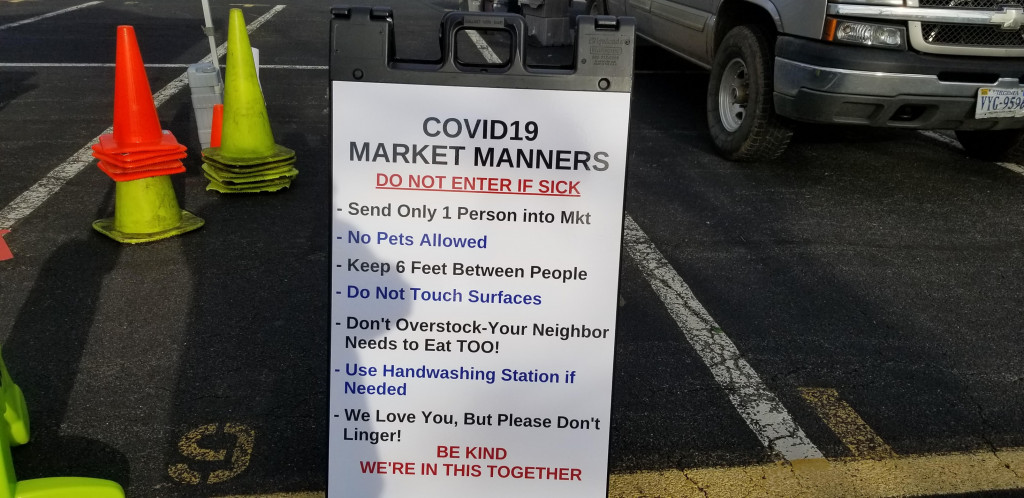
Updated March 21, 2020
Virginia Farmers Markets are Open for Business! 10 Customers at a Time
We anticipate an official statement on Monday, however, the Virginia Department of Agriculture and Consumer Services (VDACS) has assured us that farmers markets are able to stay open in Virginia provided they restrict occupancy to not more than 10 customers at a given time in the market. (This number does not include vendors).
All markets and vendors need to strictly follow the protocols provided on this page. Look at Leesburg Farmers Market photos below to see this in action.
The Secretary of Agriculture, VDACS, and the Virginia Department of Health are working with us and have been from the beginning. They are very aware of our concerns and are doing what they can to serve the farmers market community and keep everyone safe.
VDACS Commissioner Dr. Jewel H. Bronaugh asked that we let “VAFMA members know we are working diligently to adhere to the guidelines of Governor Northam and Virginia Department of Health (VDH) Commissioner Oliver regarding the Public Health Emergency Order. Farmers’ Markets are important to us in Virginia. We are doing the very best to keep everyone safe so we can move through this pandemic and all of Virginia’s valuable agricultural industries can return to normal operations.”
Markets with Revoked Permits
As we continue to work to keep farmers markets open, let us know if your local municipality, city council, etc closed your market or suspended your permit due to COVID-19.
Senator Mark Warner’s office has stated that they are happy to continue to work with VAFMA “to ensure farmers markets across the Commonwealth are not unnecessarily forced to close/suspend operations during this public health emergency.” Please e-mail us if this applies to your market.
Let Us Know if You are Open
We are building a list of markets that are open. Please email us your market name, where you’re market is located, your market hours, etc so we can build a list and advertise the open markets!
We Need Your Help
During this critical time we need funds to continue to advocate for you. As an organization with limited resources we rely on donations to keep our doors open. Now more than ever, we need your support to help keep Virginia farmers markets open for business. If you are able to, please make a donation today.
As we have more news, we will share it here.
Thank you for your continued support of Virginia’s farmers markets!
Updated March 20, 2020
As of right now farmers markets are able to stay open in Virginia provided they restrict occupancy to not more than 10 customers at a given time in the market. (This number does not include vendors). All markets and vendors need to strictly follow the protocols provided on below.
We have submitted letters to the Governor, the Secretary of Agriculture and the Commissioners of Agriculture and of Health requesting that farmers markets be considered essential infrastructure for food access and remain open. They are discussing the situation and will follow-up with us once they have determined how to proceed.
The Secretary of Agriculture, VDACS, and VDH are working with us and have been from the beginning. They are very aware of our concerns and are doing what they can to serve the farmers market community and keep everyone safe.
We thank everyone who signed on to the letter. We know there are many more who wanted to sign it but missed the short window we had it open. We had to move very quickly because the situation is rapidly changing as you well know.
As soon as we have more news, we will let you know. Thank you for your continued support of Virginia’s farmers markets.
Updated March 20, 2020
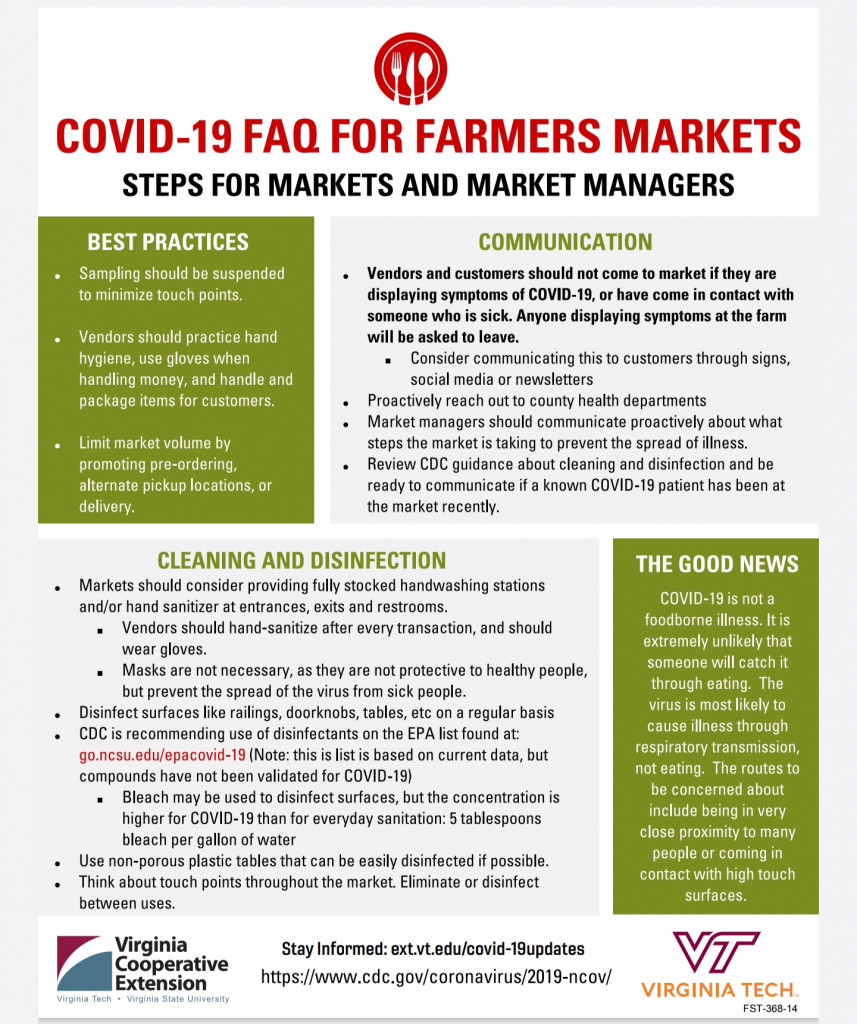
Updated March 19, 2020
Today, VAFMA sent a letter to Bettina Ring, the Secretary of Agriculture and Forestry in Virginia, requesting that farmers markets be given the same designation as grocery stores for the purposes of COVID-19 containment policies.
The letter was digitally signed by over 1,100 individuals. Those who signed the letter represented many Virginia businesses:
In addition to the letter, we also included protocols for Farmers Markets should they remain open:
Updated March 19, 2020
We believe that farmers markets provide vital food access services to our community, and we will continue to do so as safely as possible The health, safety and overall wellbeing of our farmers market community is always our top priority.
With this in mind, we have been closely monitoring the rapidly-changing situation around COVID-19 (commonly referred to as coronavirus), responding to new information as it arises and preparing for all possible scenarios, with the goal of farmer’s markets continuing to safely serve Virginia’s communities.
As the spread of COVID-19 has become a reality in Virginia, market operators are developing communications, preparing contingency plans and, in some regions, beginning to modify operations. Some public health officials may require that markets close until the outbreak diminishes.
To help market operators adapt to this rapidly changing economic and public health situation, the Virginia Farmers Market Association has compiled information and recommendations from farmers markets, state associations, health departments and the Centers for Disease Control.
Farmers Markets Are Essential: Our open-air markets are important and necessary food outlets for community members from all economic backgrounds across Virginia to purchase healthy, fresh, nutritious food.
Farmers Markets Allow You to Shop Direct: Shopping at our markets means that you can purchase fresh, nutritious food from as close to the source as possible.
Farmers Markets Support Our Region: Farmers markets are essential to the livelihood of farmers and food producers. Shopping at farmers markets means you are supporting your local economy, which is especially critical in this time of uncertainty.
There is no evidence that food is a source or transmission route for the virus. To keep our farmers, producers, and shoppers safe, we are encouraging the following actions at Virginia’s markets:
- Our farmers markets are vibrant community spaces where many shoppers gather to socialize in addition to purchasing groceries. However, for the time being, we ask shoppers to prioritize essential food purchasing and eliminate social gatherings at the market.
- Farmers markets vendors will only be food /produce vendors and ready-made food will be carry out only.
- If a vendor is sick or has been exposed to (or suspects they have been exposed to) COVID-19, ask them not to attend the market. We require vendors and customers to take note if they are experiencing symptoms such as fever or dry cough, to stay home to take care of themselves and protect others if they are sick.
- Market managers will wipe down commonly used services, such as the market information table, EBT redemption devices (phones, card swipers), and have hand sanitizer available.
- Market managers will mandate that Vendors wear gloves and change them frequently.
- All markets will suspend sampling of products at the market and to restrict access to condiments, silverware, cup lids, etc. unless requested.
- Markets will send an email/post on social media before the market informing customers of the new guidelines and asking folks who are sick to stay home.
- Customers will practice “social distancing” – maintaining a space of about six feet from each other – and markets will inform customers of this policy as they enter the market; have signage, and volunteers, if possible, spread throughout the market reminding customers of the practice.
- Market managers will temporarily redesign market locations to limit contact and still allow people to purchase from vendors. The space between vendors will be increased to reduce crowding to 10+ feet with no more than 2 customers at a booth at a time.
- Customers will not handle any items on the vendors’ tables but, instead, will just point at what they want and let vendors bag their purchases; market managers will provide vendors with signage informing customers of this policy.
- Market managers are asked to rescind/relax the policy about not allowing purchases until opening bell to prevent the long lines that form at vendors’ booths before the market opens; instead, allow early arrivals to make purchases.
- Vendors are asked not to use cloth tablecloths to make it easier to sanitize surfaces; or, if using a tablecloth, to lay a sheet of plastic over the top of vendor tables or cloth tablecloths which can be wiped down with sanitizer.
- We are encouraging vendors to have one person to handle money and another to handle product.
- Contactless pay options are easy and convenient and minimize the need to interact with credit cards or cash. Customers will be encouraged to use Apple Pay or similar. We encourage Vendors to round their prices to the nearest dollar so they can stop accepting coins (in the laboratory the virus has survived on coins). Vendors handling money should not touch food products until they have washed their hands.
- As possible, have volunteers stop by the vendor booths to relieve them so they can leave and wash their hands.
- Hand sanitizer should be ubiquitous throughout the market, at market manager tables, vendor tables and also in other locations throughout market.
- If possible, vendors should pre-package produce, offering it in closed containers or single-use containers.
- All special events and programming, including POP programming, food and cooking demos, music, etc. are suspended. Farmers Markets will be for food sales only.
The COVID-19 virus is thought to be spread through respiratory droplets produced when an infected person coughs or sneezes and can be killed using a regular household cleaning spray or wipe. If you are an at-risk population (particularly older adults or immunocompromised individuals) we encourage you to prioritize your own health and minimize your exposure to large groups of people. Consider asking a friend or family member to pick up your market items for you.
Stay Informed
Farmers market operators should consult their local health departments and the Virginia Department of Health for current public health information pertinent to their community. Regularly read the updates and recommendations available on their website and sign up for any alerts offered by local or county-level health officials. The CDC has issued interim guidance for large public gatherings with useful steps.
Highlights include:
- Establish relationships with key community partners and stakeholders such as local health departments and collaborate with them on broader planning efforts.
- Virginia has declared a state of emergency in response to COVID-19. A state of emergency is a procedural step that allows state and local health officials to access additional resources for identifying, treating and preventing the spread of the disease.
Proper Cleaning Protocol
Vendors must clean and sanitize their supplies and equipment regularly:
For surfaces that will be in contact with food or food products (such as produce bins, coolers, boxes, tools), use detergents and sanitizing solutions that are food safe:
- Clean the surface with a detergent (for example, Dawn dish detergent) and rinse thoroughly.
- Use a sanitizer product that is approved for use on food contact surfaces. (Consult this list: https://producesafetyalliance.cornell.edu/sites/producesafetyalliance.cornell.edu/files/shared/documents/PSA-Labeled-Sanitizers-for-Produce.xlsx).
- Follow the label instructions for the sanitizer you use when mixing, applying and storing it. Some sanitizers require contact time on the surface to be effective, and others require a rinse step.
- Allow the surface to air dry.
To clean and sanitize surfaces that will not come into contact with food or food products (such as chairs, tables, truck beds):
- Clean the surface with a detergent (for example, Dawn dish detergent) and rinse thoroughly.
- Use a product that the EPA has approved for use against viruses and other emerging pathogens: https://www.epa.gov/sites/production/files/2020-03/documents/sars-cov-2-list_03-03-2020.pdf.
- Follow the label instructions for the sanitizer you use when mixing, applying and storing it. Some sanitizers require contact time on the surface to be effective, and others require a rinse step.
- Allow the surface to air dry. Wear disposable gloves when cleaning and sanitizing surfaces.
Additional Resources
CDC Link
https://www.cdc.gov/coronavirus/2019-nCoV/summary.html
Virginia Department of Health
http://www.vdh.virginia.gov/coronavirus/
FEMA Guidance for COVID – 19 Preparedness
Please take good care of yourselves, your family and friends, and your communities
as we all navigate this immense challenge together.
